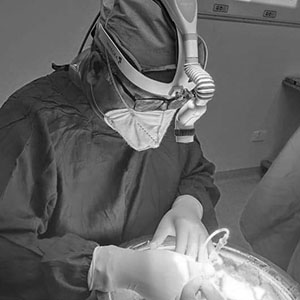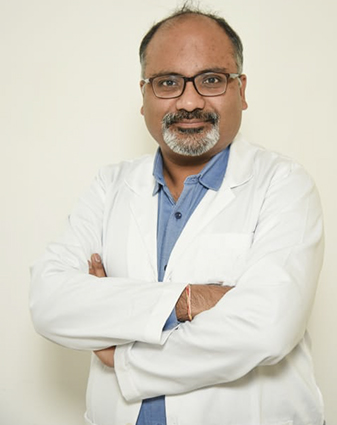Life after death is a strong belief and is an ongoing process of rebirth. The law of Karma decides which way the soul will go in the next life. The Bhagavad Gita describes the mortal body and the immortal soul in a simple way like the relationship of clothes to a body:
“Vasamsi jirnani yatha vihaya navani grhnati naro ‘parani tatha sarirani vihaya jirnany anyani samyati navandi dehi” – Bhagavad Gita, chapter 2:22
Bhagavad Gita, chapter 2:22
As a person puts on new garments giving up the old ones, the soul similarly accepts new material bodies giving up the old and useless ones.
So above belief states that old material body is given up and is considered useless, but actually these are not useless but priceless.
Organ and tissue donation
Organ donation is the gift of an organ to help someone else who needs a transplant. The donated organ may be from a deceased donor or a living donor. Hundreds of people’s lives are saved or improved each year by organ transplants.. Donation is an individual choice and views differ even within the same religious groups.
- Living donor: A person during his life can donate one kidney (the other kidney is capable of maintaining the body functions adequately for the donor), a portion of pancreas (half of the pancreas is adequate for sustaining pancreatic functions) and a part of the liver (the segments of liver will regenerate after a period of time in both recipient and donor).
- Deceased donor: A person can donate multiple organ and tissues after (brain-stem/cardiac) death. His/her organ continues to live in another person’s body. Organs that can be donated by people who have died include the Kidneys, Liver, Lings, Heart, pancreas and small bowel. Tissue such as skin, bone, heart valves and corneas can also be used to help others.
Age limit for organ donation
Depending upon whether it is living or cadaver donation age limit varies; for example in living donation, person should be above 18 year of age, and for most of the organs deciding factor is the person’s physical condition and not the age. Specialist healthcare professionals decide which the organs are suitable case to case. Even the organs and tissue from people in their 70s and 80s have been transplanted successfully all over the world. In the case of tissues and eyes, age usually doesn’t matter. A deceased donor can generally donate the Organs & Tissues with the age limit of:
- Kidneys, liver : up-to 70 years
- Heart, lungs : up-to 50 years
- Pancreas, Intestine : up-to 60-65 years
- Corneas, skin : up-to 100 years
- Heart valves : up-to 50 years
- Bone : up-to 70 years
Who can be a Donor?
- Living donor: Any person not less than 18 years of age, who voluntarily authorizes the removal of any of his organ and/or tissue, during his or her lifetime, as per prevalent medical practices for therapeutic purposes.
- Deceased donor: Anyone, regardless of age, race or gender can become an organ and tissue donor after his or her Death (Brainstem/Cardiac). Consent of near relative or a person in lawful possession of the dead body is required. If the deceased donor is under the age of 18 years, then the consent required from one of the parent or any near relative authorized by the parents is essential. Medical suitability for donation is determined by medical team at the time of death.
How can I be a Donor, What is the process of taking donor pledge?
You can be a donor by expressing your wish in the authorized organ and tissue donation form (Form-7) and send signed copy to NOTTO at below mentioned address:
“NATIONAL ORGAN AND TISSUE TRANSPLANT ORGANISATION
4th Floor, NIOP Building, Safdarjung Hospital Campus, New Delhi-110029″
You may fill up an online pledge to donate your organs.
Do I need to always carry my donor card?
Yes, it will be helpful for the health professionals and your family.
Do I need to register my pledge with more than one organizations?
No, if you have already pledged with one Organization & received a Donor Card, you need not register with any other.
Can a person, without a family, register for pledge?
Yes, you can pledge, but you need to preferably inform the person closest to you in life, a friend of long standing or a close colleague, about your decision of pledging. To fulfill your donation wishes, healthcare care professionals will need to speak to persons at the time of your death for the consent.
If I had pledged before, can I change my mind to un-pledge?
Yes, you can un-pledge by making a call to the NOTTO office or write or visit NOTTO website www.notto.gov.in and avail of the un-pledge option by logging into your account. Also, let your family members know that you have changed your mind regarding organ donation pledge.
Are donors screened to identify if they have a transmissible disease?
Yes, Blood is taken from all potential donors and tested to rule out transmissible diseases and viruses such as HIV, Hepatitis B and Hepatitis C. The family of the potential donor is made aware that this procedure is required.
Can I be a donor if I have an existing medical condition?
Yes, in most circumstances you can be a donor. Having a medical condition does not necessarily prevent a person from becoming an organ or tissue donor. The decision about whether some or all organs or tissue are suitable for transplant is made by a healthcare professional i.e. transplant team, taking into account your medical history.
In very rare case scenarios, the organs of donors with HIV or hepatitis-C have been used to help others with the same conditions. This is only ever carried out when both recipient and donor have the condition. All donors have rigorous checks to guard against infection.
Can I be an organ donor, if I have been rejected to donate blood?
Yes, The decision about whether some or all organs or tissue are suitable for transplant is always made by a transplant specialist, taking into account your medical history. There may be specific reasons why it has not been possible to donate blood, such as having anemia or had a blood transfusion or had hepatitis in the past or there may be reasons why you could not donate blood because of your health at that time – sometimes a simple thing like a cold or medication that you are taking can prevent you from donating blood. But this is not the case with organ donation.
How does whole body donation differ from organ donation?
Organ donation for therapeutic purposes is covered under the Transplantation of Human Organs Act (THOA 1994). Whole body donation is covered by the Anatomy Act 1984.
Organ and Tissue donation is defined as the act of giving life to others after death by donating his/her organs to the needy suffering from end stage organ failure.
Body donation is defined as the act of giving one’s body after death for medical research and education. Those donated cadavers remain a principal teaching tool for anatomists and medical educators teaching gross anatomy.
Can a dead body be left for medical education or research after the organs have been retrieved for donation?
No, Bodies are not accepted for teaching purposes if organs have been donated or if there has been a post-mortem examination. However, if only the corneas are to be donated, a body can be left for research.
Get An Expert Consultation
* Kidney Transplant
* Robotic Kidney Transplant
* SWAP Kidney Transplant
* ABO Incompatible Transplant
* AV Fistula
* CAPD Cather Insertion
drvarunmittal@yahoo.com

